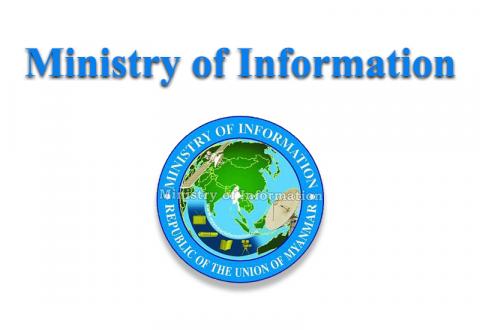Seek the best ways to maintain water resources without pollution
Flash floods, landslides, and inundation problems are partly caused by the inadequate maintenance and conservation of rivers and streams. Myanmar needs to prioritize flood preparedness, especially in areas prone to flooding, as torrential rains can cause rivers and creeks to overflow when they are not properly managed.
In fact, rivers and creeks are natural blessings for the world. These water sources are invaluable for supporting biodiversity. However, climate change and reckless human activities are deteriorating the natural environment. Excessive extraction of natural resources, improper disposal of waste, and uncontrolled discharge of industrial sewage are causing ecosystem degradation in many parts of the world on a daily basis.
At a time when the world is facing challenges in fresh water supply, industries, agriculture, energy generation, and other activities discharge around two million tonnes of sewage and septic waste into water bodies. The weight of this waste is equivalent to the weight of 6.8 billion people. In this regard, researchers note that developing countries dispose of 70 per cent of industrial waste and more than 80 per cent of septic waste into rivers and creeks without treatment.
Myanmar possesses 16 per cent of the water resources in Southeast Asia as well as 12 per cent in Asia. Natural resources such as rivers and creeks are vital for all parts of Myanmar. Notably, major rivers such as the Ayeyawady, Thanlwin, Sittoung, and Chindwin serve not only as transport routes but also provide essential resources for food, clothing, and shelter for the people. Actually, not only developing and least developed countries, including Myanmar, but developed ones have to immediately solve the problems of the undisciplined disposal of waste into the water.
Currently, these major rivers are undergoing degradation due to changes in water flow caused by climate change and inappropriate human activities, such as illegal gold mining that uses chemicals. These rivers are becoming silted due to reduced freshwater flow and wastewater from mining industries, which degrade water quality. Consequently, the poor-quality water poses a threat to fish species and overall biodiversity. Moreover, water erosion causes the loss of land, houses, and property for people living along the riverbanks.
Large amounts of waste significantly degrade water quality and pose risks to human health and ecosystems throughout the world. To prevent river pollution, each individual must practise responsible behaviour; only then will clean and usable water resources, economic value, and environmental benefits be maintained and enhanced. Therefore, everyone must work collectively to preserve rivers, ensuring their sustainable existence on Earth.
#TheGlobalNewLightOfMyanmar

